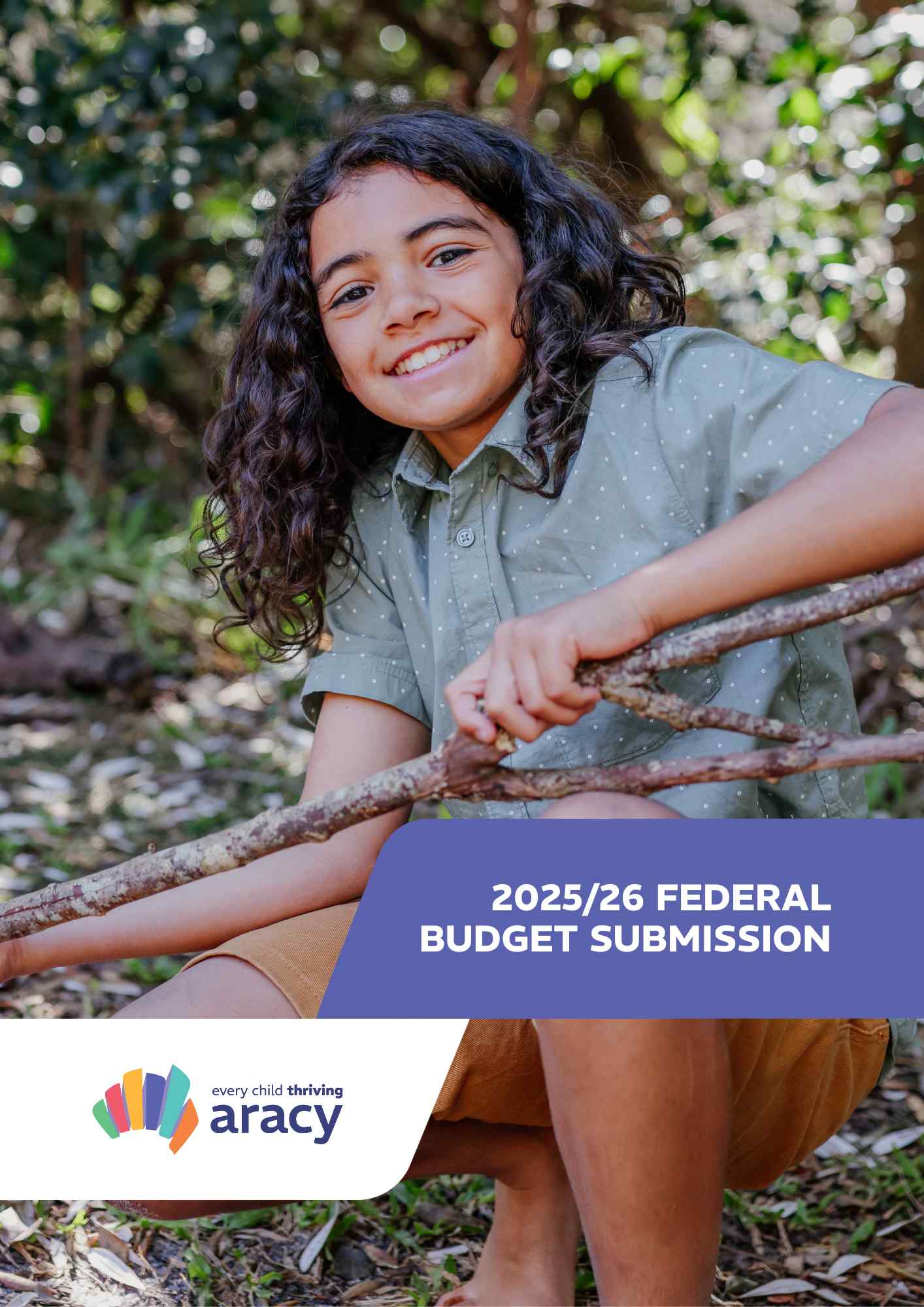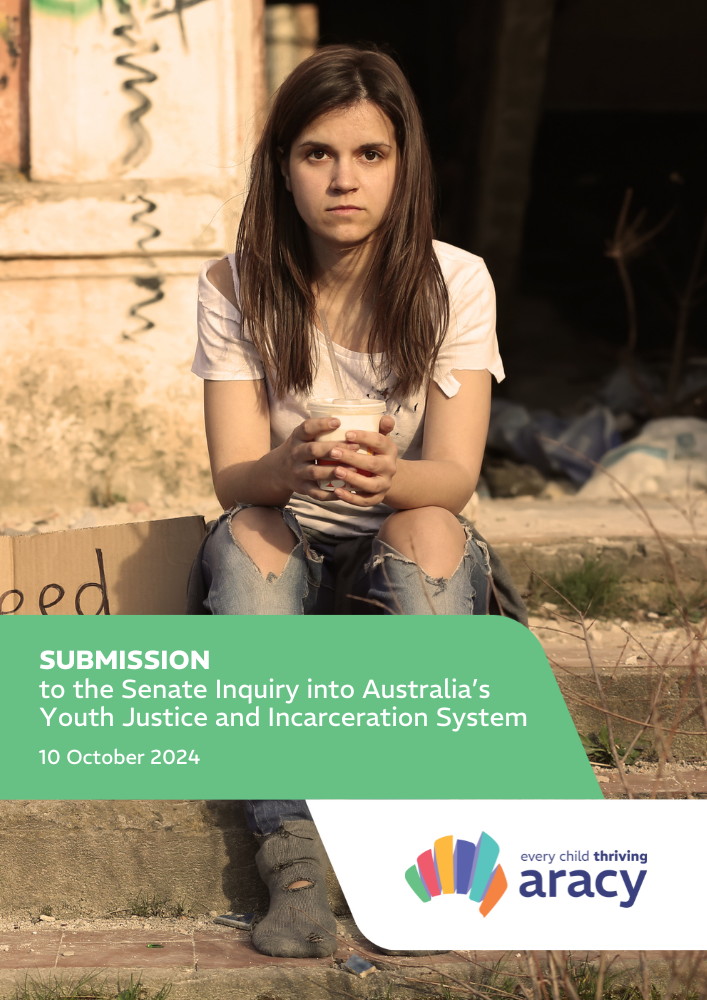ARACY 2025/26 Budget Submission
At ARACY, we believe every child and young person in Australia deserves the opportunity to thrive. Our 2025–26 Budget submission to Federal Treasury highlights key priorities informed by the voices

Children and young people, regardless of race, ability, or background, should have the opportunity to thrive. However, specific demographics are over-represented in the youth justice system due to inequitable processes. Predictors of contact with the justice system often arise early in life, yet resources focus on punitive measures like incarceration, which worsens long-term outcomes.
To break this cycle, a public health approach is needed, addressing early life risk factors—such as historical trauma—and focusing on prevention and rehabilitation. This includes tackling adverse childhood experiences and reducing racial inequities, especially for Aboriginal and Torres Strait Islander youth.
pdf 609.05KB

SHARE THIS
Category
Author
At ARACY, we believe every child and young person in Australia deserves the opportunity to thrive. Our 2025–26 Budget submission to Federal Treasury highlights key priorities informed by the voices


With six connected areas, The Nest ensures young Australians have everything they need for the best start in life, helping them reach their highest potential.

Using The Nest, has helped ARACY to be at the forefront of disease prevention and the promotion of holistic health for young Australians.

Here you’ll see some examples of how The Nest has been used in organisations outside of ARACY across Australia.
Discover the latest in child and youth health and wellbeing through our newsletter. Subscribe now for ARACY news, events, and research updates.
Privacy collection statement
ARACY respects your privacy and is committed to protecting your personal information. When you interact with us, we may collect certain details to provide our services, such as your name and contact information. This information will only be used for purposes directly related to our business activities and will not be shared with third parties without your consent, except where required by law. By engaging with us, you consent to the collection and use of your information. For more details on how we handle your information, please refer to our full privacy policy.
ARACY acknowledges the Traditional Custodians and their enduring connection to the lands, waters, and skies. We pay our respects to Elders past and present and extend that respect to all Aboriginal and Torres Strait Islander people.
In solidarity, ARACY supports the Uluru Statement from the Heart and the need for truth-telling about the history and impact of colonisation. We treasure the rich and diverse cultures and customs of First Nations people – valued knowledge holders, leaders and partners in creating the conditions for all our children to thrive.